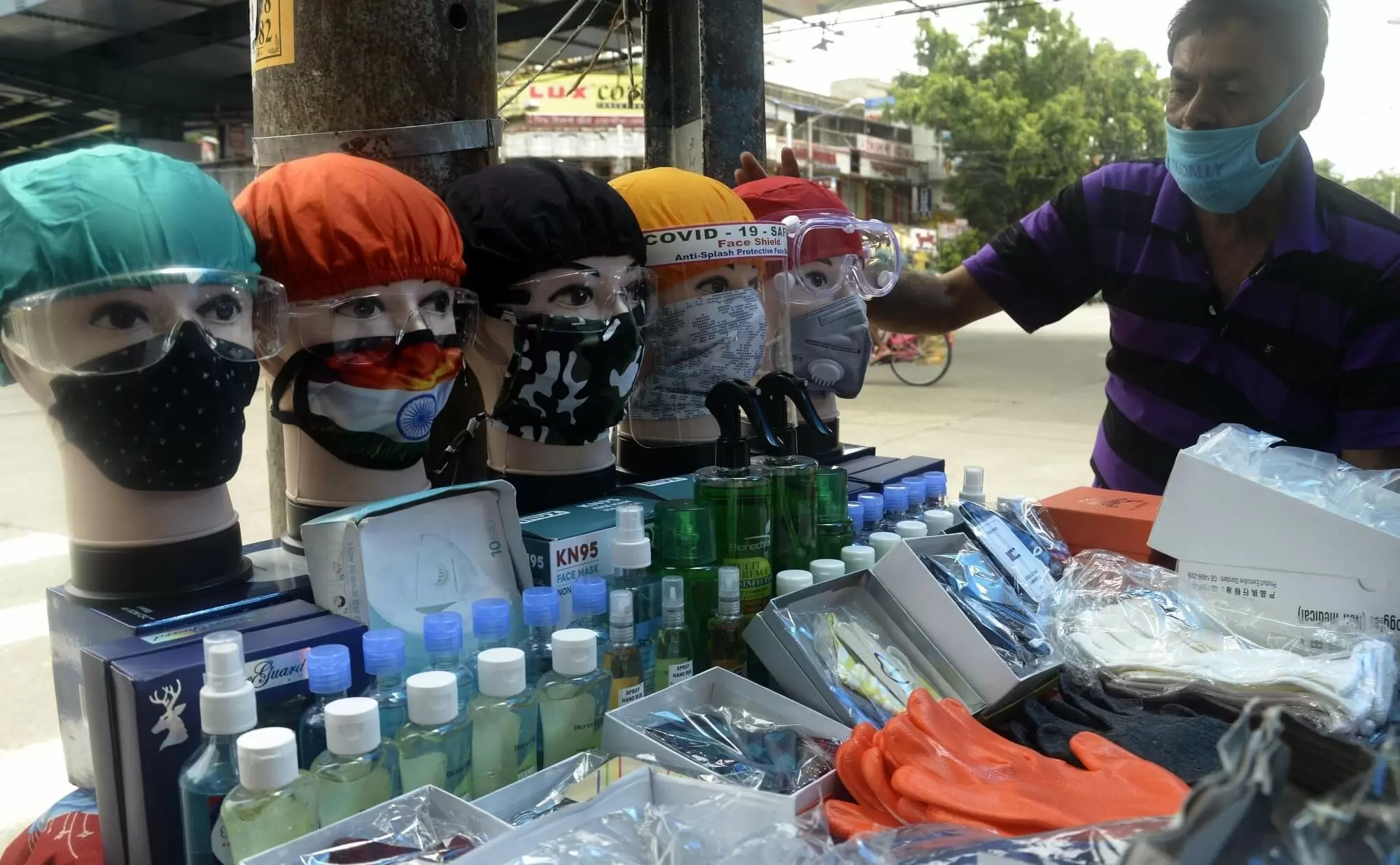Covid-19: Face masks do not lead to false sense of security
London
27-July-2020

Photo for representation purpuse only
Wearing a face covering does not lead to a false sense of security or make people less cautious about good hand hygiene, say researchers.
While it is not clear how much of an effect face-covering can have, scientists have urged policymakers to encourage wearing of face coverings because the risks are minimal while the potential impact is important in the context of the Covid-19 pandemic.
However, early in the pandemic, the World Health Organisation (WHO) warned that wearing face coverings could "create a false sense of security that can lead to neglecting other essential measures such as hand hygiene practices". This type of behaviour is known as 'risk compensation'. "The concept of 'risk compensation' itself is the greater threat to public health as it may discourage policymakers from implementing potentially effective measures, such as wearing face coverings," said the study authors from University of Cambridge and King's College London.
For the results, the research team examined the evidence of risk compensation to see whether concerns might be justified in the context of face coverings to reduce transmission of SARS-CoV-2.
The idea behind risk compensation is that people have a target level of risk they are comfortable with and they adjust their behaviour to maintain that risk level. At an individual level, risk compensation is commonplace: for example, people run for longer to offset an eagerly anticipated indulgent meal and a cyclist may wear a helmet to cycle at speed.
According to the study, at a population level, evidence for risk compensation is less clear. At least 22 systematic reviews have assessed the effect of wearing a mask on the transmission of respiratory virus infections. These include six experimental studies, involving over 2,000 households in total - conducted in community settings that also measured hand hygiene.
Watch This TWL Video
While none of the studies was designed to assess risk compensation or looked at social distancing, their results suggest that wearing masks does not reduce the frequency of handwashing or hand sanitising.
In fact, in two studies, self-reported rates of handwashing were higher in the groups allocated to wearing masks. The team also found three observational studies that showed people tended to move away from those wearing a mask, suggesting that face coverings do not adversely affect physical distancing at least by those surrounding the wearer.
However, they say that as none of these studies has been peer-reviewed, they should be treated with caution. "The concept of risk compensation, rather than risk compensation itself, seems the greater threat to public health through delaying potentially effective interventions that can help prevent the spread of the disease," the study authors wrote.-IANS
More Headlines
Bajrang Dal Appeals to Ban Oyo Check-Ins for Unmarried Couples in Bengaluru
Heavy Rains Predicted In Five TN Districts On January 11
Cold Wave Grips Rajasthan: Fatehpur Hits 1.1°C, Nagaur 1.7°C
Actor Ajith Kumar Escapes Unharmed After Crash During 24H Dubai Practice
32 Dead As 7.1 Magnitude Earthquake Strikes Nepal-Tibet Border
Bajrang Dal Appeals to Ban Oyo Check-Ins for Unmarried Couples in Bengaluru
Heavy Rains Predicted In Five TN Districts On January 11
Cold Wave Grips Rajasthan: Fatehpur Hits 1.1°C, Nagaur 1.7°C
Actor Ajith Kumar Escapes Unharmed After Crash During 24H Dubai Practice
32 Dead As 7.1 Magnitude Earthquake Strikes Nepal-Tibet Border










